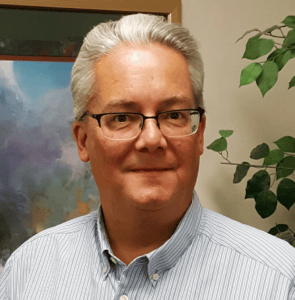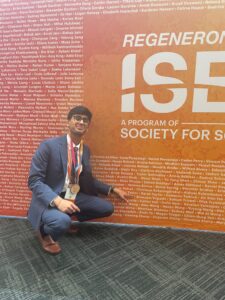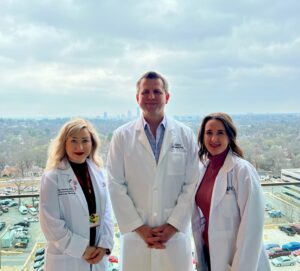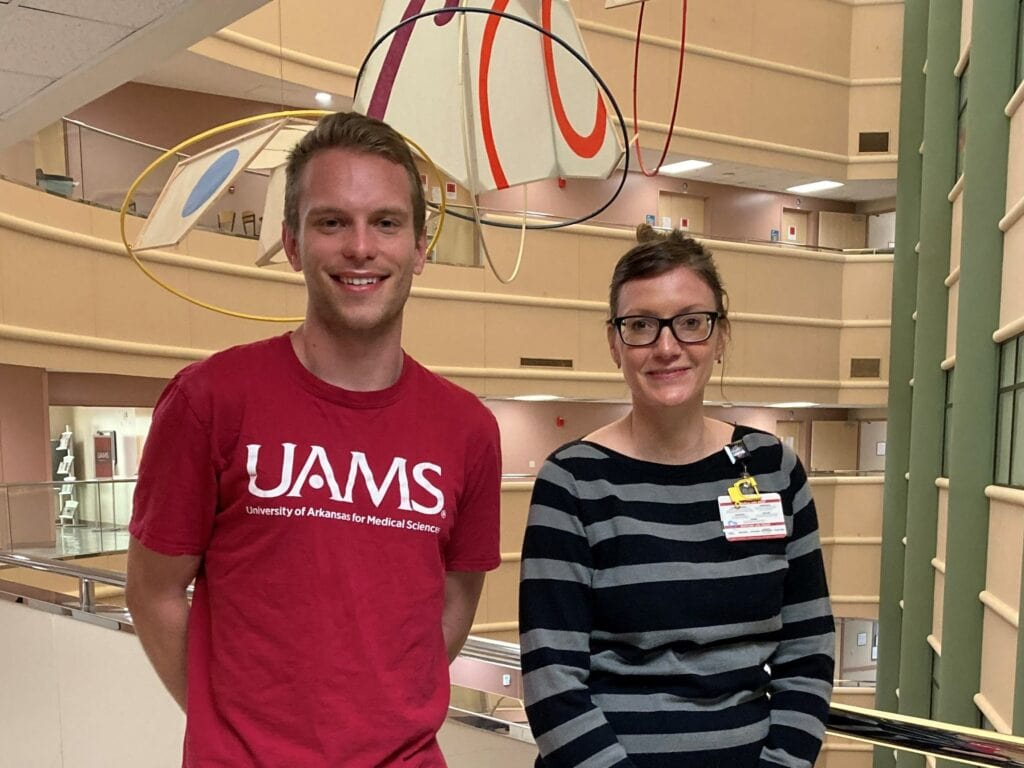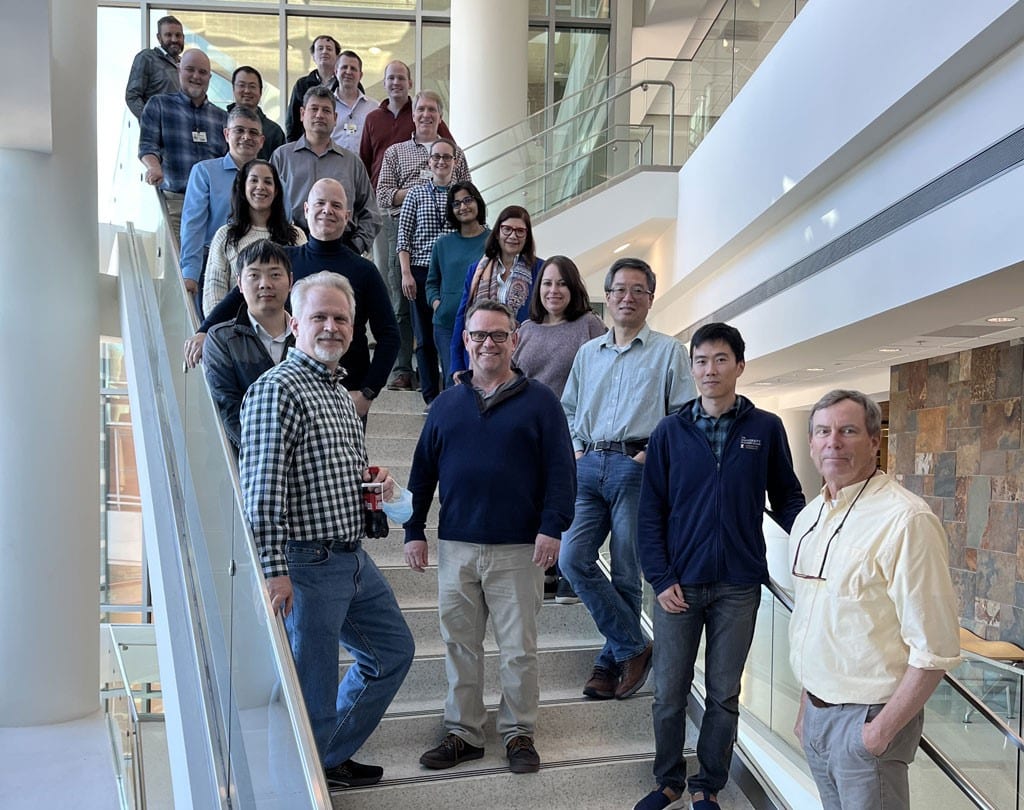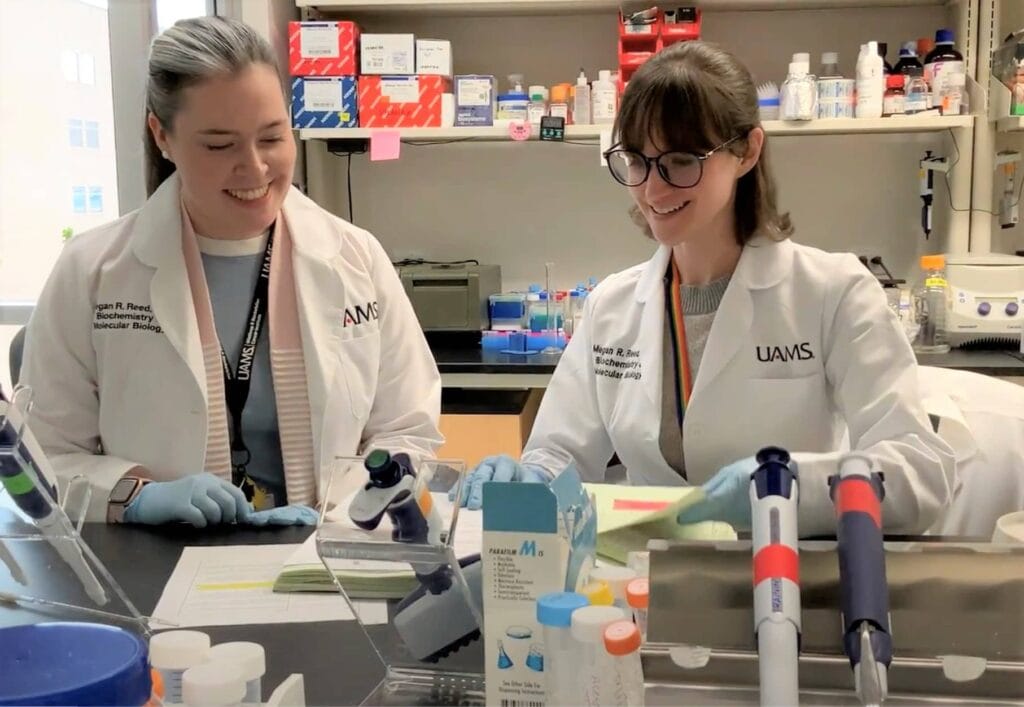
By David Robinson
May 24, 2023 | Only two years ago, the idea of commercializing their future research discoveries was a novel concept for Julia Tobacyk, Ph.D., and Megan Reed, Ph.D. Today they can say they created a startup company as postdoctoral fellows in the Health Sciences Innovation and Entrepreneurship (HSIE) training program, which is the National Institutes of Health’s (NIH) National Research Service Award training core of the Translational Research Institute at the University of Arkansas for Medical Sciences (UAMS).
The HSIE program is unlike traditional academic postdoctoral education — the goal is to transform scientists to think like entrepreneurs and channel their research discoveries into commercial ventures to bring new health care products to patients.
Tobacyk and Reed are in their second year of the HSIE training program, and it is intensive. In addition to mentored laboratory research, HSIE postdocs take business classes in the Graduate Entrepreneurship Program in the Sam M. Walton College of Business at the University of Arkansas, Fayetteville. They attend mentoring workshops from entrepreneurs and venture capitalists, form teams to develop a business plan for a health science discovery with classmates from diverse ethnic and academic backgrounds, and compete in pitch competitions.
“At first, the fast-paced environment is a culture shock for most HSIE postdocs, but we all quickly adapt and develop our inner entrepreneurial spirit,” Tobacyk said.
Tobacyk’s research in the laboratory focuses on developing treatment strategies for opioid use disorder in pregnant women without negatively affecting their babies. Alarming statistics reveal that a baby is born physically dependent on opioids every 15 minutes in the United States. The gold standard treatment for opioid-dependent pregnant mothers is buprenorphine (BUP). Although BUP treatment may prevent pregnant mothers from relapsing, it also contributes to withdrawal in their babies, also known as neonatal opioid withdrawal syndrome (NOWS).
Tobacyk, along with her research mentor, Lisa Brents, Ph.D., assistant professor in the UAMS College of Medicine Department of Pharmacology and Toxicology, filed a provisional patent application with co-workers in September 2022 to protect their invention of a deuterated form of BUP (BUP-D2). Applying precision deuteration is thought to alter the metabolism of BUP to minimize formation of the harmful metabolite that contributes to NOWS.
In January 2023, Tobacyk and Reed formed a company called Pediatrica Therapeutics, LLC, a pharmaceutical startup company dedicated to bringing BUP-D2 through the drug development pipeline. In recent months, the startup team has won or placed in a number of business plan competitions across the U.S. and in Canada. In April, they won first place in the Arkansas Governor’s Cup Collegiate Business Plan Competition, which came with a $20,000 prize.
Their team finished second with a $10,000 prize in the graduate business plan competition at the 2023 Stu Clark New Venture Championships in Winnipeg, Canada. They also took third place ($750) for their elevator pitch at that competition. The team was a finalist ($1,500) in the Baylor New Venture Competition as well as finalists in the UA Heartland Challenge and the international Rice Business Plan Competition ($1,500).
The graduate entrepreneurship students and founding business partners of Pediatrica Therapeutics, LLC, are:
- Megan Reed, Ph.D., chief executive officer, who has experience in biochemistry, drug development and patenting of pharmaceutical compounds; she is a HSIE postdoctoral fellow in the College of Medicine Department of Biochemistry and Molecular Biology.
- Julia Tobacyk, Ph.D., chief scientific officer, who co-invented BUP-D2 and performed preclinical studies; she is a HSIE postdoctoral fellow in the College of Medicine Department of Pharmacology and Toxicology.
- Hayot Tuychiev, B.A., chief marketing officer, who is a two-time Emmy-winning documentary filmmaker and manages scientific and public communications for the company.
- Veronica Garcia, B.A., chief operating officer, who is the former director of Community Engagement and Inclusion at the Springdale, Arkansas, Chamber of Commerce and has assisted 75 entrepreneurs to form businesses.
In addition to their business classes and founding their new company, Tobacyk and Reed continue to work in the laboratory, publish papers and develop their careers as translational scientists. However, the HSIE training program has empowered them to look at their research through a new, entrepreneurial lens.
With the team members concluding their final year of HSIE training in June, Reed, Tuychiev and Garcia are moving on to pursue other career goals.
“Julia and I both agree that academic research holds plenty of unexploited potential to leverage discoveries to improve health care,” Reed said. “Pediatrica Therapeutics will not be our last venture.”
Tobacyk and Brents hope to advance the company’s goals with a Small Business Innovation Research program award, which they will apply for this year as co-principal investigators.
Reed and Tobacyk are supported by the UAMS Translational Research Institute through the NIH National Center for Advancing Translational Sciences, Clinical and Translational Science Award grants UL1 TR003107 and TL1 TR003109. Brents is a graduate of the Translational Research Institute’s KL2 Mentored Research Career Development Scholar Awards Program, also supported through NCATS.
This article was based on a first-person account by Julia Tobacyk, Ph.D.

